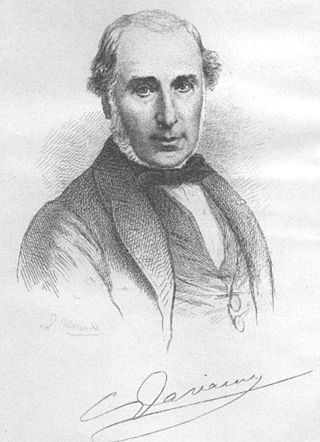Top Qs
Timeline
Chat
Perspective
Casimir Davaine
French physician From Wikipedia, the free encyclopedia
Remove ads
Casimir-Joseph Davaine (19 March 1812 – 14 October 1882) was a French physician known for his work in the field of microbiology. He was a native of Saint-Amand-les-Eaux, department of Nord.
In 1850, Davaine along with French pathologist Pierre François Olive Rayer, discovered a certain microorganism in the blood of diseased and dying sheep.[1][2] In the diseased blood, Rayer and Davaine observed the bacillus that is known today as Bacillus anthracis, the causative bacterium of anthrax. Soon afterwards, Rayer published a description of the bacillus in a paper titled, Inoculation du sang de rate (1850).[3][4]
In 1863, Davaine demonstrated that the bacillus could be directly transmitted from one animal to another. He was able to identify the causative organism, but was unaware of its true etiology.[5][6] Later on, German microbiologist Robert Koch investigated the etiology of Bacillus anthracis, and discovered its ability to produce "resting spores" that could stay alive in the soil for a long period of time to serve as a future source of infection.[7]
Casimir Davaine is also credited for pioneer work in the study of sepsis (blood poisoning).[8]
Remove ads
References
Further reading
Wikiwand - on
Seamless Wikipedia browsing. On steroids.
Remove ads

